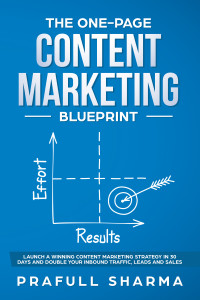Top B2B Tourism Industry Trends
The worldwide tourism industry accounted for $7 trillion in revenue in 2013, or 9.5% of the global economy, and was responsible for employing 266 million of the worldwide workforce. As the world continues to rebound from financial setbacks, the B2B tourism industry is becoming witness to changes that have the potential to impact companies in a positive way.
B2B companies all across the globe can feel the ripples caused by industry changes. As B2B tourism professionals look to grow customers through content marketing in a world of long sales cycles and more complex decision-making, companies would be wise to stay aware of the trends and changes in the business.
Muslim Travel Warehouse The Muslim Travel Warehouse recently emerged as the first B2B global aggregator of Halal tourism products. Over 100 travel agents and tour operators signed up to be distribution partners; this marks the first time in the industry that travel agents will have access to travel packages tailored for Muslim customers. The Muslim Travel Warehouse first debuted at the Arabian Travel Market, which was held in Dubai in early May.
Travel packages geared toward Muslim consumers is projected to reach $200 billion (U.S.) over the next five years.
According to their website, Muslim Travel Warehouse aims to be the global B2B travel aggregator as the company offers Halal tourism packages and activities. Travel agencies will have access to search and booking capabilities which are Muslim-friendly, and the travel industry will be able to access in one place travel packages to Muslim consumers.
The initial launch of the tour packages will include 16 destinations, including locations such as China, Thailand, the UK, and Malaysia. Specific locations are CrescentRated, meaning tourists can see the rating for specific amenities which are provided to travellers. These include prayer facilities, availability of Halal food, and Muslim community connect programs.
TravelStart Kenya As the first online travel agency to sell Jambo Jet tickets, neXt was recently introduced as an online B2B booking tool to develop new travel agents and help those who want to start their own travel business. Travel agents will have the capability to search for comparable prices for certain destinations.
Australia B2B Recent changes in tourisms practices from the land down under include the transition from the Australian Travel Compensation Fund to the Agents Travel Accreditation Scheme. The change was presented as a way for travel agents to build more safety around both their own business and their customers’ money. This innovation in the B2B travel industry will reduce cost and increase protection, allowing suppliers to be paid directly rather than through a manual system.
Expedia and Orbitz The way in which Expedia interacts in the B2B industry is set to change in the coming years. Expedia announced in February that it will acquire Orbitz, an online travel site competitor, for $1.6 billion. This includes gaining:
- Orbitz Partner Network: The company’s B2B travel branch provides private label travel solutions to major airlines, hotels, travel agent networks, and financial institutions.
- Orbitz for Business: Travel management companies can access customized programs for their specific business needs.
Air Go Egypt Travelport recently announced a multi-year agreement with Air Go Egypt, which will provide 67,000 Travelport agencies across the globe access to inventory, fare, and ancillary offerings. Air Go, as part of the agreement, promises to participate in specific merchandising solutions and marketing programs. This agreement further connects the world’s travel providers with travel buyers in the B2B tourism industry.
B2B Marketing and the Tourism Industry Elizaveta Naumov, marketing manager with Textmaster, lists five goals for B2B marketers in the travel and tourism sector. They incude:
- Content type-understanding your market and maintaining relationships with customers
- Content power and technology-the ease of sharing through social media and other channels adds another layer to content goals and distribution
- Social and content strategy-interesting and useful content means investing of resources
- Mobile optimization-gearing content toward a mobile society
- Internationalization of content-multilingual content
The face of B2B tourism industry may be ever-changing, but the goal of content marketing remains the same. Connecting with the right audience and growing relationships is just one key to success as B2B marketers move along on the unique and complex sales journey.
Share This Story
5 Comments
Leave A Comment
Get the latest growth ideas, strategies, and best practices delivered to your inbox.
Quick read that helps 7000+ subscribers.









tourism sector has top competition for the online digital marketing. SEO is more hard to find a top list. anyway good article i found in this portal. Thank you.
I am from Centeral Asia from Tajikistan. I am touroperator and I would like to become your partner in Toursim business or your representative in Tajikistan, Afghanistan and all part of Central Asia if you need some detal please drom me your message and I will respond to them
or give me advice how i should cooperate with you
Thanks and I am looking forward to hering from you soon
Mamadgamin
Great Concept
Write more about B2C MArket.
I started travel bussiness recently
can suggest me any idea to grow my bussiness
I like the part where you mentioned that lists of five goals for B2B marketers in the travel and tourism sector where I have to pay attention to the article